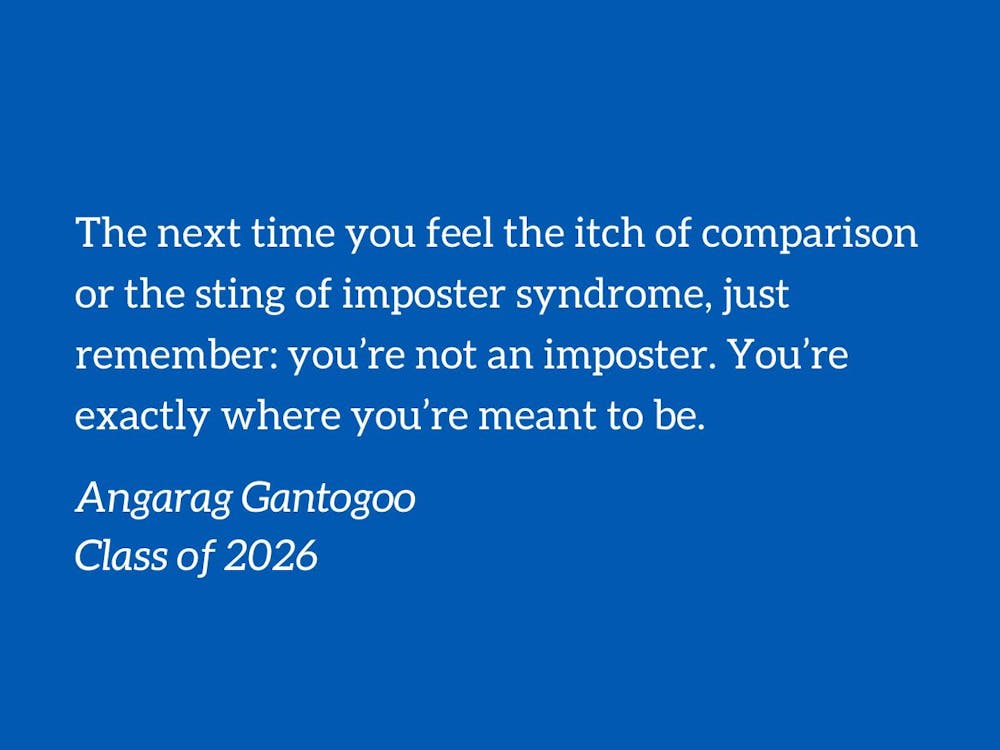"He finished this assignment in an hour! How come it has taken me days to complete this! She looks so pretty in that dress! I wonder why I can’t dress like that everyday..."
Why do we compare ourselves to others? More specifically, why do we do it when it almost never makes us feel better? I mean, there I was, sitting in class, scrolling through the endless achievements of my peers on social media, and suddenly it felt like everything I’d ever done academically wasn’t good enough. The perfect grades, the scholarships, the prestigious internships — they all seemed like they belong to someone else.
It’s the classic trap of comparison, and I’m starting to think it’s not even a modern-day problem. Sure, we now have Instagram and LinkedIn to give us constant, curated reminders of how well everyone else is doing, but hasn’t comparison always been a thing? The ancient philosophers probably didn’t have a digital feed, but I bet they still felt a pang of jealousy when their peers were lauded for groundbreaking ideas. So, what is it about human nature that makes us so obsessed with stacking our accomplishments against others?
Some people say it’s natural to want to benchmark ourselves, to see how we measure up. After all, it gives us some frame of reference, a way to understand where we lie in the grand scheme of things. But what they don’t often tell you is that this need to compare is one of the fastest ways to feel inadequate — cue imposter syndrome, where even the most accomplished among us feel like frauds waiting to be exposed.
We all know the feeling: you land an academic achievement, be it acceptance into a prestigious program or a glowing recommendation from a professor, and instead of basking in the glory, you panic. "What if they find out I’m not actually that smart?" you wonder. The irony? The very people you’re comparing yourself to probably feel the same way.
Imposter syndrome is like a shadow that follows you around, showing up at the worst possible times. It tells you that your achievements are either a fluke or not nearly as impressive as someone else’s. It convinces you that if you just tried harder, you could finally be “good enough.” The trouble is, there’s always someone ahead of you — someone smarter, more accomplished, more capable. And the more you compare, the further you feel from your own success.
So how do we stop? How do we break free from the never-ending loop of comparison and learn to feel proud of our own work without feeling like a fraud? I think it starts with understanding that everyone’s path is different. Just because someone else has reached a certain milestone doesn’t mean you’re behind. Life — and academia — is not a race. It’s more like one of those group projects where everyone plays a different role, and success looks different for everyone involved.
And then there’s gratitude. I know, it sounds cliché, but it’s true. When we focus on what we’ve accomplished — what we’ve learned, who we’ve become — we start to realize that our journey is valuable in its own right. Your GPA might not be perfect, but maybe you’ve gained insight into what truly interests you. Maybe you’ve struggled through a tough course and come out stronger for it. That’s worth celebrating.
Lastly, surround yourself with people who remind you of your worth, people who see your accomplishments for what they are — yours. It’s easier to silence imposter syndrome when you have a community who encourages you, not a stream of comparison constantly reminding you of how far you think you have to go.
In the end, maybe we’ll never fully stop comparing ourselves to others — it’s human nature, after all. But we can choose to shift our focus. We can remind ourselves that someone else’s success doesn’t diminish our own. So the next time you feel the itch of comparison or the sting of imposter syndrome, just remember: you’re not an imposter. You’re exactly where you’re meant to be.
Angarag Gantogoo is a Trinity junior. Her column, "Peopleology," typically runs on alternate Saturdays.
Get The Chronicle straight to your inbox
Sign up for our weekly newsletter. Cancel at any time.

